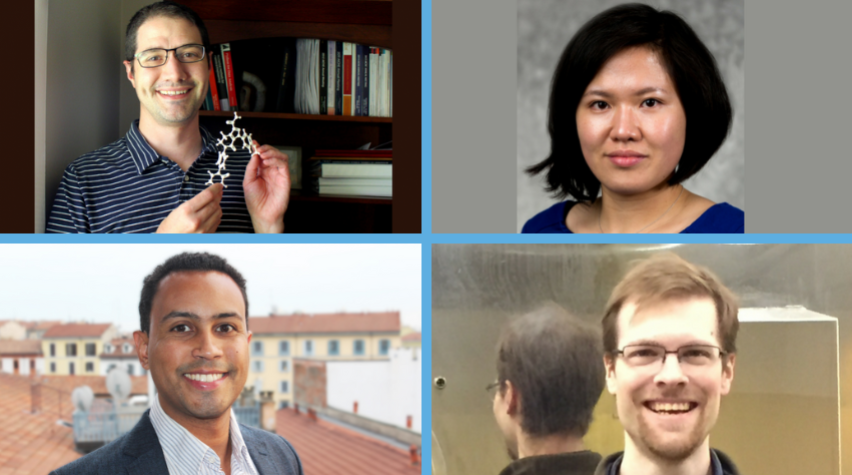
The Meet the Process Engineers series showcases the diversity of process engineers who work in a wide range of industries within the chemical engineering profession. Some of these industries include petrochemicals, food, bulk chemicals, and pharma. It isn't uncommon for process engineers to choose careers in the pharmaceutical industry. Process engineers in pharma focus on the end-to-end manufacture of drugs and medication.
Read below if you’d like to learn more about the career path, day-to-day responsibilities, and challenges of process engineers in the pharmaceutical industry.
Jacob Albrecht, principal scientist, Bristol-Myers Squibb
Albrecht was originally drawn to process engineering because of its inherent creativity. He states, “Process engineering is appealing because it is inherently creative: done right, the product has more value than the sum of its parts, and designing the process requires some creative thinking.” Process engineering in his group at BMS involved developing, characterizing, and executing a chemical synthesis route for small-molecule pharmaceuticals to support clinical trials.
During his time at BMS, Jacob enjoyed the variety of challenges, utilizing process engineering fundamentals and modeling techniques to make smart decisions, and the ultimate goal of manufacturing new medicines. Although his work came with its fair share of challenges, it was worth the reward. He states, “working through these challenges has a big payoff: being able to see that patients benefited from a drug that was manufactured using a process you developed.”
Alexander Herbert, lyophilization process engineer, Boehringer Ingelheim
Herbert recently transitioned from his 10-year career in the pharmaceutical industry. He started out as a bench chemist and transitioned into a role as a process engineer, quickly developing a singular focus on lyophilization (freeze drying) process development. At the Ben Venue Laboratories, he was tasked with developing lyophilization processes for sterile injectable drug products.
During his time working in pharma, his biggest challenge was “balancing the needs of production and the greater business against the unimpeachable requirements of quality and safety.” When discussing the evolution of his career path, he states, “My own career path has moved from hands-on laboratory work to more statistical analysis and first-principles modeling. My focus has shifted from gathering experimental data to helping others maximize the value of their experimental information as it is collected." Alexander currently works as a safety engineer for Zin Technologies, Inc.
Yangmu Liu, process engineer, GlaxoSmithKline
Liu’s career path was heavily influenced by her dad, a retired mechanical engineer in China. She became a chemical engineer because she was more interested in chemistry and biology rather than mechanics. At GSK, she was part of a team responsible for developing a continuous manufacturing process for a small-molecule active pharmaceutical ingredient (API). She describes pharma as a heavily regulated industry and explains that “pharmaceutical companies have mostly relied on batch manufacturing processes. However, continuous processes offer several advantages, such as process intensification, reduced manufacturing footprint, and shortened scale-up/tech transfer timelines, just to name a few.”
As for challenges, Liu says the main challenge of her position at GlaxoSmithKline involved working with a team from diverse academic backgrounds. In discussing it, she explains that "in order to work effectively across disciplines and cultural boundaries, it is essential for the team members to speak and understand each other’s languages and develop a mutual appreciation for each other’s perspective. This is especially crucial when it comes to implementing new technology.” Yangmu currently works as a principal scientist at Alexion Pharmaceuticals.
Vitor Lacerda Mauricio, process and project engineer, Dipharma Francis
Mauricio was always fascinated by chemistry and thought chemical engineering would be equally fascinating. He grew to love the problem-solving and interdisciplinary aspects of the field. As an industrial graduate, he joined a Brazilian petrochemical company and learned what it meant to be a process engineer. At Dipharma Francis, Vitor was responsible for finding improvement opportunities and developing solutions to achieve them, including process optimization through data analysis for quick-win solutions, as well as for CAPEX projects.
Some of the biggest challenges he faced in his role involved understanding process problems, such as obstruction of equipment by runaway polymerization reaction, or incidents like fire in a hydrocarbon multistage pump. When speaking about the importance of his work, Vitor explains that “in the API industry, I understand that process engineering is about optimizing assets through flexible plants, ensuring adherence to GMP standards and product quality, as well as optimizing utilities and recovery of raw materials.” Vitor is currently an R&D engineer at Sulzer Chemtech.
Join the Community of Process Engineers
The Community of Process Engineers is brought to you by Scott & Karen Love. Their support enables the AIChE Foundation to advance process engineers at every stage of their career allowing them to Do a World of Good.
AIChE Foundation – Doing a World of Good Campaign

If you are interested in learning more about professional development, networking, and interviewing, be sure to check AIChE Career DiscoveryTM, which is part of the Institute for Learning & Innovation (ILI). See upcoming instances of the Career Discovery Workshop on AIChE Academy and read more about the process here.
Learn more about professional development


